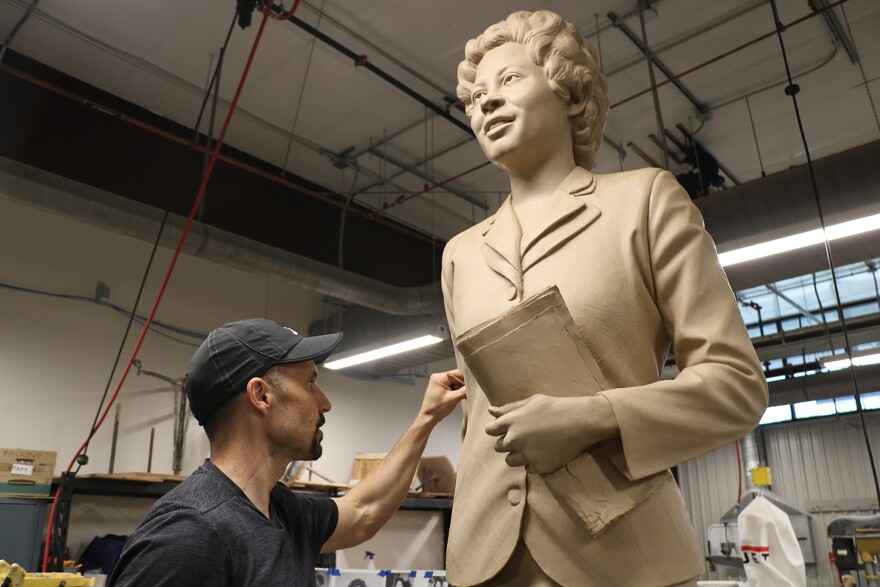Key advances have been made to replace Arkansas’ two statues in the U.S. Capitol, though their unveilings won’t happen as soon as originally hoped.
The architect of the U.S. Capitol notified the state in a letter Tuesday that approval has been given for a full-size clay model of Little Rock civil rights activist Daisy Gatson Bates to be used to cast the bronze statue. Meanwhile, the sculptor creating a statue of music legend Johnny Cash says he has completed work on a clay model and is preparing to submit a packet of material about it for approval.
Each state has two statues on display, most in Statuary Hall, with the ones currently representing Arkansas, attorney Uriah Rose and former U.S. Sen. James P. Clarke, being more than a century old. In 2019, at the urging of Gov. Asa Hutchinson, the Arkansas Legislature approved replacing them with Bates and Cash.
Former Arkansas House Speaker Shane Broadway, who chairs a committee overseeing the replacement process, says after receiving the letter Tuesday about the approval of the Bates statue, he personally delivered it to Hutchinson at the state Capitol.
“He was very pleased to get that letter and to know that the process continues to move along,” Broadway said.
Hutchinson had said during a bill signing ceremony on April 11, 2019 that he hoped the new statues could be unveiled before the end of his term in January 2023.
“I knew we were shooting for the moon,” Broadway said. “We told both artists not to rush getting this done. It’s a piece that you’ll have to live with for the rest of your life.”
Benjamin Victor of Boise, Idaho was selected by the governor’s National Statuary Hall Steering Committee and the Capitol Arts and Grounds Commission to make the Bates statue. It will be his fourth to be placed in the U.S. Capitol.

Little Rock artist Kevin Kresse was chosen to make the Cash statue. While he has made several high profile works of art, this will be his first for the U.S. Capitol, which has an extensive approval process.
Adding details to the Cash statue
After 14 months of work on the design, making a small maquette, then carefully refining a full-size clay model, Kresse said in an interview that it’s finally complete.
“I’m at a point now where I really need someone to take it from me,” he said with a laugh, “because I’ll keep messing with it from here to eternity.”
For much of this year, Kresse has been working on the eight-foot-tall model in a studio at the University of Arkansas at Little Rock’s Windgate Center of Art and Design. That’s where Gov. Hutchinson visited with Kresse in August to get his first look at the clay model, praising the artist for his work.
In the months since, Kresse has been slowly adding intricate details using a soft, oil-based clay that allows him to add and remove clay until he gets an appearance he likes. Some parts of the model appear smooth, while other areas have rich patterns.
“One way of keeping things interesting is to do different textures, so that’s one of the things I’ve been focusing on once I was finished with the body of the sculpture itself,” Kresse said. “Things like that that just keep the eye moving throughout the piece, smoother texture on the skin. And then he had those amazing eyes that, as one of his daughters said, look through your soul when he looked at you.”

Cash’s children have given suggestions to Kresse as the work has evolved. He’s planning for the outside color of the bronze to be a dark patina.
The statue has Cash standing on what gives the appearance of a rough, wooden front porch, similar to how his boyhood home in Dyess looked. He’s wearing boots with an intricate pattern.
Kresse is now preparing a packet of information about the clay model that will be sent to the U.S. Capitol architect for final approval before a foundry can begin casting the statue. Completion is not expected until next March or April, he said.






